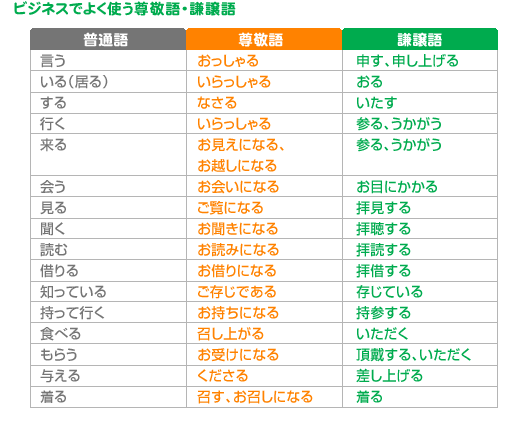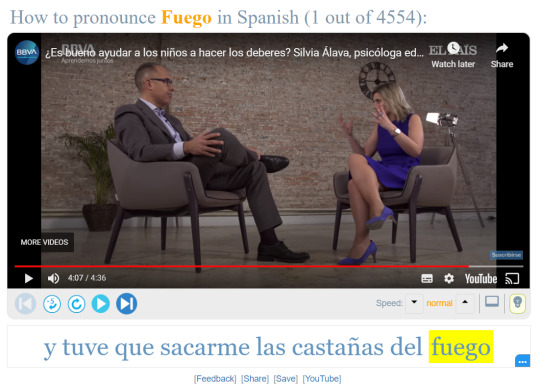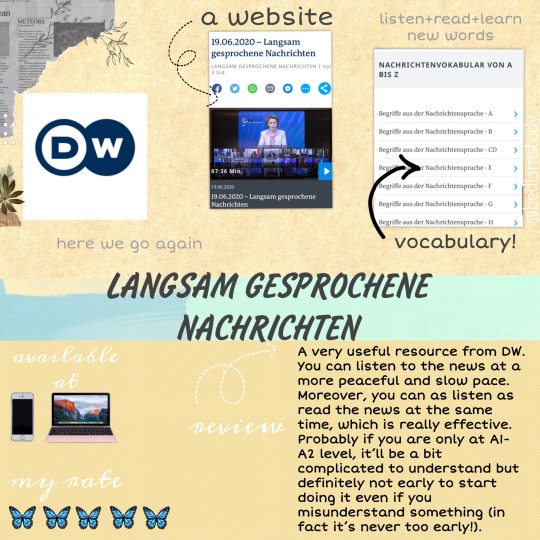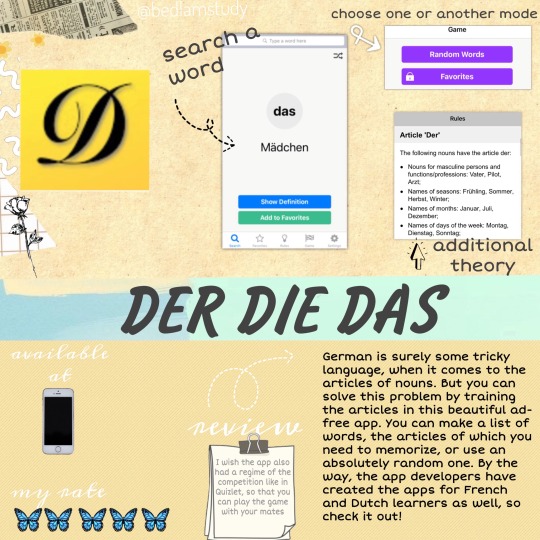はじめまして、エリンです!イギリス人です。専攻は日本語と言語学です。一年生です。二十歳です。よろしくお願いします!
Don't wanna be here? Send us removal request.
Text
Two new open-access books on inclusion and decolonization in linguistics!
Inclusion in Linguistics, Anne H. Charity Hudley, Christine Mallinson, Mary Bucholtz (Eds.) (2024), Oxford University Press
Full-text PDF Companion website
Decolonizing Linguistics, Anne H. Charity Hudley, Christine Mallinson, Mary Bucholtz (Eds.) (2024), Oxford University Press
Full-text PDF Companion website
Per Anne H. Charity Hudley, "we strongly encourage readers to engage with [the books] as a pair. The volumes and the models of decolonized and inclusive research, teaching, advocacy, and action that they present are informed by each other." (Source)
They also ask: "In support of publication justice, please share the links rather than the PDF files so that our authors get the download documentation and credit for their work that they deserve." (Source)
Go forth and be educated!
2K notes
·
View notes
Text
Why do i-adjectives and na-adjectives conjugate so differently?
In Japanese, adjectives are categorized into two main types: i-adjectives and na-adjectives. These two types differ in their forms and the way they conjugate.
I-adjectives end with the syllable "い" (i) in their base form and they can directly modify nouns without needing any additional particles. This is how they conjugate:
Base Form: 高い (takai) - "high" or "expensive"
Negative: 高くない (takakunai) - "not high" or "not expensive"
Past: 高かった (takakatta) - "was high" or "was expensive"
Past Negative: 高くなかった (takakunakatta) - "was not high" or "was not expensive"
Na-adjectives usually end with a consonant followed by a vowel other than "い" in their base form. When directly modifying a noun, they must be followed by the particle "な" (na). They do not conjugate in the same way as i-adjectives; instead, their conjugation often involves the copula "です" (desu) or "だ" (da). This is how they conjugate:
Base Form: きれい (kirei) - "beautiful" or "clean"
Negative: きれいではない (kirei dewa nai) / きれいじゃない (kirei ja nai) - "not beautiful" or "not clean"
Past: きれいでした (kirei deshita) - "was beautiful" or "was clean"
Past Negative: きれいではなかった (kirei dewa nakatta) / きれいじゃなかった (kirei ja nakatta) - "was not beautiful" or "was not clean"
The differences between i-adjectives and na-adjectives in Japanese stem from their historical and linguistic origins. I-adjectives are part of the native Japanese vocabulary, known as "和語" (wago), and their conjugation pattern can be traced back to classical Japanese. In contrast, many na-adjectives originated from Chinese loanwords (known as "漢語" or kango) and nouns. When Chinese words entered Japanese, they often carried descriptive qualities but did not fit neatly into the existing adjective conjugation system. As a result, they were adapted in a way that treated them more like nouns that required a particle ("な") to function adjectivally. Na-adjectives can be considered "nominal adjectives" because they behave similarly to nouns. They need the copula "です" or "だ" to form predicates, and they use "な" to modify nouns, indicating their grammatical status is closer to nouns than to i-adjectives.
In conclusion, the distinction between i-adjectives and na-adjectives in Japanese is rooted in historical and logical reasons: this division not only reflects the historical integration of foreign elements into Japanese but also maintains a logical grammatical structure that differentiates between native and adapted forms.
324 notes
·
View notes
Text
i'm using an open source online textbook (ancient greek for everyone) as part of my "get better at latin and greek" summer project and so far it's a pretty solid textbook but the thing it does that makes it really, really useful is it tells you what the stem is for each word and then explain why that stem transforms/changes.
like for example for "τιθημι" it says that the stem is "θη," but in the present tense it's reduplicated, but you can't reduplicate an aspirated consonant like θ so you use a τ instead. and when explaining third declension nouns it explains that the masculine/feminine nominative ending is -ς, and in words where the stem ends in a consonant it will often either remove the stem's final consonant (παιδ- -> παιδς -> παις) or the -ς will drop (δαιμων- -> δαιμωνς -> δαιμων). these are just a couple examples but so far these explanations are making it much much clearer how we get all the irregularities that i was originally told i just had to memorize with little rhyme or reason behind it. greek makes a lot more sense this way.
so anyway i recommend this to anyone who's looking to learn/improve at greek!
239 notes
·
View notes
Text
149 notes
·
View notes
Text
Why I Don’t Want to Become a Polyglot
��and Why I Only Learn One Language at a Time
Disclaimer: These are my personal thoughts. If learning multiple languages at once makes you happy, go for it. Everyone has a right to spend their free time how they like.
Disclaimer #2: I do intend to learn multiple languages throughout my lifetime, not just one. What I mean by “not wanting to become a polyglot” is that I don’t want to just learn languages for the sake of learning a language; for the sake of being able to say I can speak 5 languages or something. I only want to learn a language if I truly adore it, not just so that it can be a number.
1. I spent an entire year preparing round-the-clock for my C1 German exam. It made me realise just how dedicated you have to be to a language in order to learn it to C1 level. I wanted to start learning Serbian at the time, but I physically couldn’t.
2. You can’t just abandon a language once you reach your goal. In order to maintain that level, you still need to be dedicating regular time to it. This means with each new language I pick up, it will become harder to maintain those I’ve already mastered, and I will have less time to put towards the new language. This also means I can’t just force myself to work extremely hard on a language I’m only semi-passionate about until I reach C1 level, and then abandon it. It doesn’t work like that. In my experience, you need to be extremely passionate about this language, all the time, for the rest of your life.
3. To reiterate points one and two: To reach and maintain an advanced level, it is not enough to simply like a language. You need to love it with all your heart and soul. German was the language of my ancestors. Some died shortly before I was born, some when I was very young. Learning their language made me feel so close to them; it helped me remember them. German is also a widely spoken language, with many great TV shows to watch, many movies, a lot of music and YouTubers. I have always been incredibly interested in modern German history. Despite having so many reasons to love and use German, I still often found it hard to stay motivated in German and have the dedication required to pass and maintain C1.
4. If you learn multiple languages at once, you will not just progress slower in both, but the total amount of time it takes you to master both languages will be lengthened greatly. Here is the video from Matt vs Japan I was talking about on another post. In it, he gives the example that if French takes 2 years to learn, and German takes 2 years to learn, learning them both simultaneously won’t take 4 years, it might take 5-7 years. This, to me, is extremely demotivating. I see a lot of langblrs setting yearly goals of going up one or two CEFR levels in a year. This is generally pretty achievable, depending on the language and your schedule. But then they apply this to three or four languages! I always see them disappointed at the end of the year, because of course this never happens. They rarely even go up one CEFR level in each of the languages they’re learning, because they’re spreading themselves so thin.
5. There’s nothing boring about learning one language at a time - actually, it’s a beautiful and admirable thing! Watching Matt vs Japan in various interviews on Youtube made me remember how passionate I was about German when I first started learning it, and I want to go back to that. I want German to be a part of me! Not just some random thing I do now and then. It’s fun to dedicate yourself to something, and in my opinion, it shows a deep amount of respect to native speakers of that language, their culture, their history.
6. If I can’t tolerate, or find it too boring, to only focus on one TL for several years, that to me is a sign that I probably don’t love it enough (see points 1-3).
7. My values are different than those presented often in langblr/polyglot culture. It’s tempting to see someone who is learning 7 languages at once, and think they are impressive, but after realising this person is A0-A2 in most of those languages, and maybe B1 in two more languages, I’m no longer impressed nor jealous. I would rather truly experience the German language and culture in a deeply meaningful way, than just be able to order food and buy souvenirs in 10 different languages/countries.
8. I have multiple decades ahead of me to learn languages. Let’s be honest, most of us reading this post will be in our teens, 20s, or maybe 30s. There’s no rush. I’m so excited to keep maintaining my German, spend the next two or three years completely immersed in Serbian and having that language become a part of me, and after that, spend another 5+ years dedicated to Japanese. When I look back on my German, it will remind me most of the time transitioning from my teens to my early 20s, when I discovered who I was! When I look back on my Serbian, it will remind me of settling into my young adulthood. I’ll probably be having babies around the time I learn Japanese, so it will probably remind me of that beautiful time in my life, when I look back on it.
Here are some YouTubers who are extremely dedicated to their TLs who inspire me to take on the same mindset. I’ll try to link a video where they specifically showcase why it’s great to learn one language at a time:
Matt vs Japan
Oriental Pearl
Days of French ‘n’ Swedish
Blondie in China
JJsays
439 notes
·
View notes
Text
How to write formal Japanese emails・正式な日本語のメールの書き方

The nonprofit I work for recently gave all us interns a really informative talk on the protocol for writing profession emails in Japanese, so I thought I’d share what I learned with you guys! Just so you know, I’ll be using some advanced vocab (including 敬語) in this post and pretty much won’t gloss any kanji. So if you’re feeling up to it, then let’s go! 行きましょう!
Subject line
For some reason our presenter did this one last, but I’m going to put it at the beginning. As in English subject lines, be plain and mention the specific purpose of your email. I have temporarily lost SO many work emails due to inane or repeat subject lines. Include your last name in the subject line if you think it’s necessary. Here’s a sample subject line for an internship application:
インターンシップ申し込み(XX大学・[名字・名前*])
Here’s one for the nonprofit I work for:
【[非営利団体]】トピック3:コロナウイルス(11月9日開始)
Please don’t ask what I do here…it’s semi-ridiculous. (And I don’t even get paid.)
*If you have a Western name where your given name comes before your family name, it’s more up to you which order you put them in and which one you use in general, especially if you don’t know if your Japanese recipient will be able to recognize which is which (or if you’re like me and your last name is nigh unpronounceable in kana). You might want to think about this on a case-by-case basis.
Addressing the recipient
Usually the first thing you do in an English email is greet who you’re talking to. This is the same in Japanese. Here’s a basic template:
株式会社ABC XX部 [名字・名前]様
First, you name the company* your addressee works for; second, the department; and third, their full name, accompanied by 様(さま), not さん!
*Be careful here: not all companies are 株式会社. Basically, the first line is for their workplace. If you’re a university student like me, you might be emailing someone who works for ABC大学.
Introducing yourself
Next, you should say who you are. The format for this varies on whether you are telling them who you are or reminding them, i.e., if this is your first time emailing them or not. Here’s an introduction template for a university student:
初めてメールをお送りいたします。ABC大学XX学部YY学科*の[名字・名前]と申します。
With a first email, you state that it’s the first email and introduce yourself using 申す to be extra polite. You also state your university (if they don’t work for it already, presumably), your major, and 学科* if necessary. If you’re a double major like me, you can write XX学部 twice in a row.
Here’s a template for a second email:
いつもお世話になっております。ABC大学/XX学部の[名字]です。
Basically, you thank them for talking with you again and briefly reintroduce yourself, depending on if your university or your major is more relevant. No need to use 申す.
*I’ll be honest: I don’t really know what a 学科 is or how it differs from 学部/専攻/専門. Our presenter called it a “sub-major.” No clue what that means. Concentration, maybe? Tread carefully, my friends.
Email body
Just as in English emails, Japanese emails should be simply written and get to the point as immediately as possible. That’s more basic email etiquette than anything—after all, does anyone really want to be reading emails?
You should also use 敬語 in the email body if you can. Pick whether to use 尊敬語 or 謙譲語 and then stick with your choice for the entire email. I gotta say, I have no idea how to decide which one to use! 敬語 is so hard! Do your best!!!

(Also, here’s a 敬語 Quizlet I made a while ago!)
Here are some useful phrases to include in your email body:
XXを添付しておりますので、ご確認お願いいたします。 = I have attached XX for you to check.
ご質問などございましたら、遠慮なくお申し付けください。 = If you have any questions, please do not hesitate to ask.
ご不明な点などございましたら、お気軽にご連絡ください。 = If anything is unclear, please feel free to contact me.
クッション言葉 (cushion phrases)
In classic Japanese fashion, クッション言葉 are phrases used to soften requests, questions, apologies…basically all manner of inconvenience or imposition. These can get pretty long, which seems to go against the general rule of concision in emails, but in Japanese these are very important. Use them in your email body.
Asking for help, making a request:
恐れ入りますが… (note: 入 here is pronounced い)
お手数おかけいたしますが…
ご迷惑おかけいたしますが…
Asking a question:
少々お尋ねしたいことがあります。
Making an apology:
誠に/大変申し訳ございませんが…
There are probably lots more of these to be discovered. Maybe someday a Japanese person will write YOU an embarrassingly polite email!
Closing
Ah, conclusions—the worst part of any piece of writing. Luckily, we have more templates. This is another case where the format varies depending on whether you’ve emailed this person before. Here’s the template for a first email:
お忙しいところ、お手数おかけいたしますが、何卒、よろしくお願い申し上げます。
Probably the most commas I’ve ever seen used in one Japanese sentence. This is all 謙譲語.
Here’s a template for if you’ve emailed them before:
今後とも/引き続きよろしくお願いいたします。
Basically, you have to thank them for their continued support/tolerance of you.
Signature
And here we have just what we did for the addressee at the beginning, but now for you, the sender.
[名字・名前] ABC大学XX楽部XX学科* 携帯番号:XXX メール:YYY@
Optionally, you can also link any webpage you might have (like LinkedIn) or include your home, school, or business address. I’m not totally clear on what the protocol is surrounding your cell phone number, since in the US at least I would never give that out in an email signature, but you can probably delete it or easily replace it with a work number.
*Again, substitute your place of work if necessary.
お疲れ様でした!
Yikes, that was a lot of content at once, especially since most of it is just canned phrases to memorize or keep on hand. I hope this will help you guys in all your scary email-writing endeavors!! またこの次までね!
586 notes
·
View notes
Text
あいづち
Paying attention in Japanese
When talking with Japanese people, in English or Japanese, you might notice that they frequently nod or interject something like はい or yes frequently while you are talking. This participatory style of communication characterizes spoken Japanese. With あいづち (aizuchi) or short interjections, the listener is letting you know that they are following you.
If the listener doesn’t show any reaction during a conversation, a Japanese person might feel uneasy and stop and ask if you understand. In some cases they may repeat what they said if they assume you don’t follow the conversation. Over the telephone this might happen if the listener doesn’t respond enough, with the speaker asking もしもし? to see if the listener is still there.
あいづち is an important part of Japanese conversation, and even if it seems strange at first, with enough practice it will become second nature.
Examples of あいづち
はい (does not necessarily mean “I agree” when used as あいづち; formal)
ええ (less formal than はい)
うん (more casual than はい and ええ; sounds closer to a short, hard “mm” sound in English)
ああ (”ah, I see”; less formal)
へえ (”no way”; casual)
そうですか (”is that so?”; formal)
そうですね (”I see”; less formal)
そうっか (”I see”; casual)
そう (”I see”; casual)
そうなんですか (”oh really?”; expresses with extra emphasis)
ほんとうですか (”is that true?”; formal)
ほんとうに (”oh really?”; less formal)
マジ (”really?”; casual)
なるほ��� (”I see”, “that’s right”; formal)

You can always start with a nod (in person of course) to show the speaker that you’re listening, or interject a friendly はい when the speaker pauses (Japanese people will do this because they are used to receiving あいづち). Then start throwing in a new one each time you have a conversation and you’ll be on your way to becoming an あいづち natural!
1K notes
·
View notes
Link
This is a really great article about reading in Japanese! I recommend you read the whole thing, but the tl;dr is
reading involves both vocabulary and reading skills
you should start reading before you understand everything
reading a book with 50% understanding will improve your reading skills
if a book’s not working for you, try a different one
instead of looking up every word, try guessing the meaning
look for what you know and work from there
This is my summary, but I didn’t write the article (although I did get permission to link). Really, the article has a lot more concrete tips, so I really recommend checking it out!
https://insidethatjapanesebook.com/2020/07/15/how-to-start-reading-books-in-japanese/
344 notes
·
View notes
Text
Chrome extensions for language learning
TransOver: translates any word you find on a website. Provides multiple definitions for a single word, and has a lot of useful settings, such as font size, the option to chose which websites you don’t want it to translate on, or which websites you want it to exclusively translate on.
Readlang: translates any word you find on a website. Allows you to save words into a list that you can learn from later, along with the option to memorize them through pre-made flashcards. This extension only works if the website you’re visiting is of your target language.
Google Translate: similar to both extensions listed above, has less features, but more languages.
Language Learning With YouTube: this is an extension for learning a language while watching YouTube videos that already have subtitles or auto-captions. Its features include a pop-up dictionary, suggestions for the most important words to learn, and the option to have two subtitles playing at the same time.
Language Learning With Netflix: this extension is for learning a language while watching Netflix. It has the same features as Language Learning With YouTube; a pop-up dictionary, suggestions for the most important words to learn, and the option to have two subtitles playing at the same time.
1K notes
·
View notes
Text
What babies call things
赤ちゃんの言葉

Onomatopoetic Repetitive Words
(words based on mimicking the sound the object makes)
ワンワン dog
ニャンニャン cat
ガーガー duck
モーモー cow
ポッポ pigeon
コッコ chicken
ポンポン tummy
ブーブー car
Non-onomatopoetic Repetitive Words
クック shoes (くつ)
ねんね go to sleep (寝る)
パンパン bread (パン)
キレイキレイ wipe or wash hands (綺麗)
ナイナイ put away
かみかみ chew (噛む)
すきすき hug, show affection
モグモグ eat
Body Parts (usually with the honorific prefix お)
おくち mouth
おみみ ear
おゆび finger
おはな nose
おつむ head
おてて hand
あんよ foot
Other Words Used with Babies
えんちょ sit down
ばっちい dirty
311 notes
·
View notes
Link
I’m so excited for this podcast! If you’re interested in bi/multilingualism, language learning, or just languages in general, it’s for you!
68 notes
·
View notes
Text
Pronunciation Resource - YouGlish

YouGlish aims to improve your pronunciation through Youtube videos of words and phrases spoken in context. When you search for a word, there are thousands of videos to choose from that have that word spoken in context clearly. The site automatically jumps to the point in the video where the word is spoken.

Underneath the video there are subtitles and you can also adjust the playback speed so you can hear the sentence spoken more slowly (or faster) if you’d like. There’s also a ‘Nearby Words’ section that shows you similar sounding words to the one that you searched.

Languages available: Russian, Arabic, Spanish, Chinese, Dutch, French, English, Turkish, German, Hebrew, Italian, Polish, Portuguese, Japanese, Korean and Sign Languages (ASL & BSL). You can also filter by accent. For example, in the English version you can filter by US English, UK English, and Australian English.
2K notes
·
View notes
Text





My favorite resources for studying German. You can also check them out :)
810 notes
·
View notes
Text
I want you all to know that an Arab Muslim from Tunis proposed the Theory of Evolution near 600 years before Charles Darwin even took his first breath. Don’t let them erase you.
372K notes
·
View notes
Link
For some of them I heard, some of them I use, but it is always good to know more.
661 notes
·
View notes
Text
PASS THIS ON.
The first transgender suicide hotline is now up and running in the U.S. You can reach Trans Lifeline at 877-565-8860.
592K notes
·
View notes